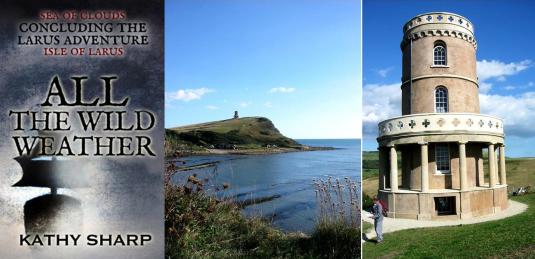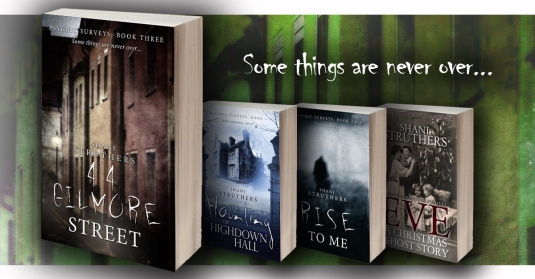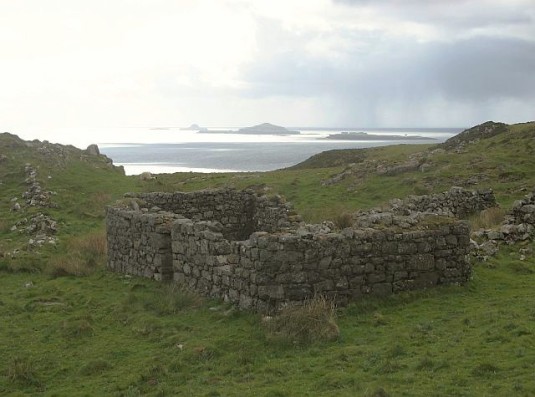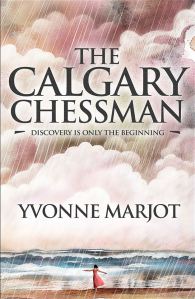Serendipity. Sometimes it’s all you could possibly ask for. This week I’ve had three unexpectedly inspiring experiences. Firstly, one of my fellow Crooked Cats came to the island on Monday – we visited beaches and art galleries, ate icecream on the waterfront, and spent the day talking about our writing. It’s wonderful to be in the company of another writer. That evening a parcel arrived – a paperback copy of Lauren Sapala’s book ‘The INFJ Writer’, which is full of useful exercises and helpful advice. I learned that my messy, bitsy, disorganised method of writing (which is neither pantsing nor planning, but more like patchwork) has a name. It’s called the mosaic technique. How nice is that? (Despite my best attempts at cheating, I always code out to INFJ. It’s a nuisance, but there we are.)
And then another friend gave me a wonderful thing. It’s a booklet and pack of forty ‘storytelling’ cards. I was messing around with them today, shuffling and dealing out a handful of cards, then using them to make up stories. It was just a bit of fun, until suddenly a story started to tell itself. ‘The Blanket of Stars’ is the first piece of extended writing I’ve done in over three months, and here it is. Small, and whole and perfect. And all thanks to Jennifer, Lauren and Carol. Here’s to serendipity – and to friends!
The Blanket of Stars
Once there was a king: the usual kind, strong and rich and wilful, dispensing judgement from his great carved throne and overseeing the running of his kingdom. He was not a happy man, for he was troubled with poor sleep, and nightmares. Not so many nightmares, at that, for it was not often that he slept long enough for dreams to come.
He sat on his throne, which come to think of it was rather hard and not very comfortable, and stared down at his servants and companions in the great hall. His brow was deeply furrowed, his shoulders high and tense, and he tapped one boot on the flagstones of the floor as he sat there. His chamberlain came forward, rather reluctantly, bowed and enquired after the king’s health.
The king glared at him. “I’m tired of having no sleep,” he grumbled. “I’m sick of these poor quality dreams. Fetch the Keeper of Dreams.”
The servants reported that no-one had seen the old man for a very long time, and they weren’t even sure if he was still alive.
“Of course he’s alive,” roared the king. “If he’d died someone would have told me.” This sounded quite logical, and anyway everyone was too afraid of the king to argue with him.
“Search high and low,” said the king, “from the deepest, darkest dungeon to the highest, most windswept tower and find the Keeper of Dreams. I want to sleep.”
So the king’s servants spread out through the castle. They searched from the deepest, darkest dungeon to the highest, most windswept tower, and at last they found the Keeper of Dreams where he’d been all along: in his own bed, fast asleep, with a dreaming smile upon his face.
The old man came before the king, sitting on his high throne, and he bowed. “Your Majesty is looking well,” he said.
“Never mind that,” said the king. “This is no time for platitudes. Anyway, I don’t believe I am looking well, because I haven’t slept for weeks. I need to sleep, Keeper. I want some pleasant dreams. Open your box of tricks. Make it happen.”
The Keeper of Dreams eyed the king for a moment, noting his frowning brow, the unsatisfied twist of his lips, and the distinctly red tinge of his eyes. “Your Majesty,” he said, “the solution to your ills is the Star Blanket. If we can get you settled into bed with the Star Blanket tucked around you, you’d soon find yourself snoozing peacefully, awash with pleasant dreams.”
“Oh,” said the king wistfully. “That does sound good.” He mused for a moment, then his shoulders, which had relaxed, drew up again either side of his ears and he shouted, “Well, what are you waiting for? Get out there and find me the Star Blanket.”
So the Keeper of Dreams packed a small bag of his most essential possessions and set off into the world. He took with him a tiny casket, containing his favourite and most beloved dreams. As he walked through the streets of the city, he observed the daily lives of the king’s people, and spoke with many as he passed by. But none had heard of the Star Blanket, or knew of its whereabouts. One old, old woman gazed at him, her face creased with thousands of wrinkles, and spoke.
“You might as well ask the beasts of the fields as the people of this city,” she said. “For they are too busy and too worldly to pay any attention to something as old and well-worn as the Star Blanket.”
“That’s good advice, ma’am,” the Keeper of Dreams said, for he was nothing if not polite, and he remembered his own old mother, dead this many a long year, and treated the old lady with courtesy on behalf of his mother’s memory. He set off out of the city gates, on his way to ask the beasts if they had seen the Star Blanket, since the people of the city had been no help to him.
The old woman watched him go, her eyes bright and far-seeing in her old, old face. She smiled, and the wrinkles doubled, as she noted that the kind and charming man was not much younger than herself. “Good luck to you, my fine fellow,” she said. “I have a feeling I’ll be seeing you again.” She closed her eyes and her head nodded upon her breast, as she fell into the quick, easy sleep of the very old.
The Keeper of Dreams got no help from the beasts of the field: cows, sheep and llamas have no use for the artefacts of dreaming. They simply lay down with the coming of darkness and the Star Blanket fell over them quite naturally so that they slept till morning, and dreamed the dreams of contented animals. Perhaps he would have more luck in the dark forest. He stumbled his way into the deepest, darkest part of the forest, tripping over tree roots and extricating himself from bramble patches, until at last he found himself faced by a fearsome looking beast, half-human and half some wild creature of the wilderness.
“Halt,” cried the beast. “I’m hungry and you’ll do for my dinner. Stand still and let me kill you.”
The Keeper of Dreams replied that he would sooner not be eaten, if possible, as he was on an urgent errand for the king. He delved into his small bag and pulled out a heel of bread. The beast seized the bread and ate it in a few bites, washing it down with water from a nearby streamlet.
“Why should I care about the king?” he said. “Once I lived in that great city of his; I was a respected member of society. But I began to have bad dreams, and then I couldn’t sleep, and at last I was so maddened by lack of it that my neighbours turned me out into the woods to die. It’s a bad season – too early in the year for fruit and grains. I’ve eaten nothing but meat for weeks. There’s not much meat on your bones, old man, but I’ll have what there is regardless. It will keep me going until tomorrow.”
He lurched towards the old man, but stumbled to a halt as the Keeper of Dreams drew out his tiny box and opened it. A warm, golden light filled the clearing.
“Oh.” The beast leaned forwards and gazed into the box. “Oh, I see.” He sank to his haunches and bowed his head, closing his eyes and falling into sleep. A little golden dust settled on his head and shoulders as he began to snore. The Keeper of Dreams patted the sleeping beast’s shoulder companionably, tucked his box back into his bag, and walked away.
On the other side of the dark forest the Keeper of Dreams spotted a young lad, watching over a flock of sheep. The sheep grazed peacefully on the green grass, a rainbow flickered into being as a shower passed across the ground, and then the sun shone again as the shepherd lad pulled a pipe out of his pocket and began to play. The old man smiled, and he felt a little of his burden lift at the joyful sound. Surely a boy so contented must know the secret of peaceful sleep and quiet dreams.
“Lad,” he cried as he started forwards. “Please help me. I am on an urgent errand for the king, who is troubled in his sleep and suffers unquiet dreams. I am seeking the Star Blanket. Please tell me you know where it is.”
“I’m not sure I can help you,” said the boy. “Each day I bring my flock in from the pasture and put them into the barn. My sister brings me food, and then I curl up with the sheep to sleep in the warm straw. Sometimes a star looks in the high window of the barn, and even though the wolf howls I know that I am safe. But I remember that when I was very young my mother would sing me to sleep, and I always had good dreams. Maybe she can help you.” And he gave the Keeper of Dreams a little bread and cheese from his satchel (for he was a good boy, and his mother had taught him to be kind to strangers) and directed him towards the mountain path that would lead him to the village in the valley below.
The Keeper opened his small box and offered it to the boy, who reached inside and pulled out an amber honey chew. This he ate with every evidence of enjoyment. The Keeper made his way across the meadow, wondering what sweet dream the young shepherd would receive when he lay down in the barn that evening.
By this time the Keeper of Dreams was very tired, and he wondered if he would ever manage to find the Star Blanket for the king, or if perhaps he was fated to walk until his legs dropped off, or his poor old heart gave out. But at last he reached the outskirts of the village, and saw a wee white cottage with a carving of leaves and flowers over the lintel. In the doorway of the house stood a woman – a very ordinary looking woman, in a peasant’s black dress and grey shawl, but her face was kind and her eyes a warm brown as she gazed at him.
“Sir, you look tired,” she said. “Will you sit awhile and take a sup of ale with me?”
The Keeper of Dreams was very pleased to take the weight off, so he dropped onto the bench beside the door and sighed as he stretched out his aching legs and sore feet. The woman brought two tankards of ale, cool and frothy, and sat beside him, sipping her drink and gazing out across the yard where a couple of chickens were hopefully pecking the ground.
“Mother, I thank you. This was just what I needed.” The Keeper of Dreams raised his tankard to the woman, who nodded but didn’t reply. For a long moment they sat there in the warm sunshine, enjoying the moment of rest, however brief. Then the Keeper of Dreams stirred and turned towards her.
“It seems to me that I met your son, up in the high pastures,” he said. “I told him I was looking for the Star Blanket, and he said that he couldn’t help me, but he remembered that when he was very young you would sing him to sleep and he had pleasant dreams. I wonder if you would mind coming with me to the city to sing to the king. He is troubled in his sleep and has unquiet dreams.”
The woman gazed at him wonderingly. “They are very ordinary songs,” she said, “and I have only a very ordinary voice. Of course, he is my son and I love him. That makes a difference.” She thought for a moment, then stood. “Wait here,” she said, and disappeared back into her cottage.
The Keeper of Dreams was content to wait. It was pleasant sitting in the sun after a mug of ale and a day of hard exercise. He may even have dropped off for a moment, but came fully alert when the woman emerged from her house, holding an old, scruffy, many-times-patched blanket. It was the faded pink of the washed out evening sky, and every square of its patchwork bore a cloth star. Some of the stars were bright and colourful, but others were faded or torn, and a few hung loose where the stitching had come undone.
The woman bundled the blanket into a bag and pulled it onto her shoulder, along with a pouch of cheese and apples. “Come on, then,” she said. “I can’t be away long, because the sheep will soon be shorn and then I need to get busy with my spinning. But my housework can wait a day or two, if the king’s in need of a sleep.”
On their first night of travelling the Keeper offered her his little box. She peeped inside, her face warmed by the golden light, but she shook her head and he closed it again. “An early start, plenty of hard work and a job well done – those will bring me rest at night. No need for any golden toy to charm my sleep.”
The two of them trudged through the great gate of the castle a couple of days later. They’d eaten all the cheese and apples along the way, and the Keeper had traded a dream for a loaf of sour bread on the second day, but they were both footsore and hungry, and very glad to have arrived. The castle kitchen was bustling with preparations for the king’s dinner, but the second cook sat them down at a table in the corner and served them soup and bread, and a fruit compote for dessert, for the ordinary people of the castle ate the same good food as the king, only that theirs was not served on silver platters or accompanied by the best Rhenish wine.
After the meal the Keeper of Dreams spoke quietly to the cook, and she allowed the woman to use her kitchen, although she insisted first on a thorough wash and a change of clothing. Luckily one of the housemaids was a similar shape to the woman, and loaned her a grey dress and white apron, and a white scarf to cover her hair. The woman set to work in the kitchen, and before long doors were opening and servants peering in to discover the source of the appetising aromas that were issuing from the oven.
At last the Keeper of Dreams brought the woman before the king. He sat as before on his high, hard throne, with a frown of bitterness on his face and his tired head on his hand. The doors opened and the Keeper strode into the hall, bringing with him a wholesome smell of cinnamon and nutmeg and cloves. The king sat up and breathed deeply. “What is this?” he demanded.
The woman curtseyed, and placed her items on a nearby table. She poured him a simple pottery mug of cinnamon milk posset, and offered a plateful of spiced cakes, still hot from the oven. The king took the drink, not without a slight curl of the lip at the plainness of its container, but after one sip he drained the mug and turned his attention to the cakes. He ate three. The Keeper took advantage of the king’s distraction to help himself to a cake. They were really very good.
The woman sat on the step below the throne and stretched out her legs in front of her, pulling down the housemaid’s skirts which were, truth to tell, slightly short and displayed a pair of nicely turned ankles and two neat, stockinged feet. The king gazed at the shapely ankles and munched absently on another cake. She leaned her head against the side of the throne and began to hum.
There was nothing much to the song – a low, swaying melody, a word or two and some fal-la-lals. Nothing much to listen to. Nothing to excite, or interest, or…
The king’s eyelids drooped and he let go of the pottery mug. The Keeper swooped forward and caught it before it could shatter on the flagstones. The king’s head fell forward and he began to snore. The woman stood and regarded him for a moment. The Keeper of Dreams began to speak, but she put her finger to her lips.
She turned and beckoned to the chamberlain, who was peering in through the double doors of the great hall. The chamberlain pushed the doors open and in came the king’s huge, wheeled, four-poster bed, so heavy that it took twenty footmen to manoeuvre it. They rolled it into the centre of the hall, and then the Keeper ushered the servants and retainers away.
The woman went to the throne and gently nudged the king.
“Whassam?” he muttered, his eyelids flickering. She put one hand under his elbow and encouraged him to stand. With the woman on one side, and the old man on the other, the king climbed down from the throne and lay down on the clean white sheets of the bed. The woman pulled up the eiderdown as the king turned on his side and mumbled sleepily.
Opening the bag she still carried over one shoulder, the woman pulled out the Star Blanket and draped it over the king. One hand came up and pawed at the blanket, but she took it and laid it down by his side, and tucked the blanket around him. She stroked his cheek gently and the frown cleared from his face. After a moment his breathing deepened again, and she gestured to the Keeper to precede her into the corridor.
“That was a kind thing you did,” said the Keeper. “Being as how that’s no magical object in there, but only an ordinary ratty old blanket of the kind that any peasant woman might make for her babies. Still, there was surely magic in the song, anyway.”
The woman smiled and touched the Keeper’s cheek. He leaned into the touch, feeling again the long distant warmth of his mother’s hand. “Every boy needs his mother from time to time,” she said. “And every mother knows the secret of the Blanket of Stars.”
She spoke to the chamberlain, who was hovering outside the doors to the great hall, clearly wanting to go in to his master. “I will return in the spring when my first grandchild is born. I’ll want the Star Blanket back then, and he won’t need it anymore.” She shouldered her empty bag and walked out of the castle, without a backward glance.
The Keeper stood watching after her for a few minutes. Behind him the chamberlain slipped quietly into the hall. The Keeper’s forehead bore its own frowning mark as he thought, rather slowly since he was tired after his journey. Then his face cleared and his eyes widened. Nodding to himself he walked out of the castle and down into the town.
As he crossed the marketplace the old woman was there, sitting on her doorstep, taking in the late afternoon sun. She looked at him without speaking as he sat on the doorstep beside her, and turned to look into her face. Her back was bowed and her face old, but her expression was as young as springtime and her eyes were bright. The Keeper took one of her gnarled, arthritic hands in his and rubbed it gently.
“When I was young, and new in my job, and I thought that I was soon to hold all the secrets of the dreaming world in my hands, I had a dream.” He paused and looked at her, and she smiled at him. The wrinkles on her face doubled, but her eyes were clear and shining and fixed on his face.
“I dreamed that I walked far, far from my home, until I came to a valley between two peaks. There the grass was green and the streams fresh and clear. The trees bore blossom, green leaf and fruit all together, and in among the fruit bushes deer grazed in the company of wolves, rabbits scampered between the paws of a lion, and an eagle screamed overhead but did not disturb the hens which searched for worms amongst the strawberries.”
The woman gazed at him serenely. Her smile deepened, and the wrinkles tripled, but she made no sound. She patted his hand comfortingly, and he continued.
“In this valley was a small white house with smoke coming from the chimney. And on the threshhold stood an enchantress, young in years and strong in the use of her power. She led me into her garden and fed me on the sweetest fruits. And as the sun dipped behind the mountains, I realised that her eyes were the precise colour of the sky at the moment when all the light has gone, but the first star has not yet begun to shine.”
He stopped, and for the first time looked uncertain. He looked again into the old, wise face and was drawn into two deep pools of smoky blue. He began to tremble.
She smiled, the smile of a woman who is taking pity on a man when she knows he has floundered into deep water. Despite the wrinkles, the Keeper suddenly saw a woman who, in her own mind, was as young and powerful as ever she had been. She stood and pulled him to his feet.
“Some dreams are not meant to be shared,” she said, “and others wait a lifetime within us.” She pulled his head down and brushed her lips over his. “But now you have found my garden, and you will find that the fruits are still sweet.”
***
Cards used:
The King
The Keeper of Dreams
The Enchantress
The Wild Beast
The Youngest Son
The Mother
The Star Blanket














Recent Comments